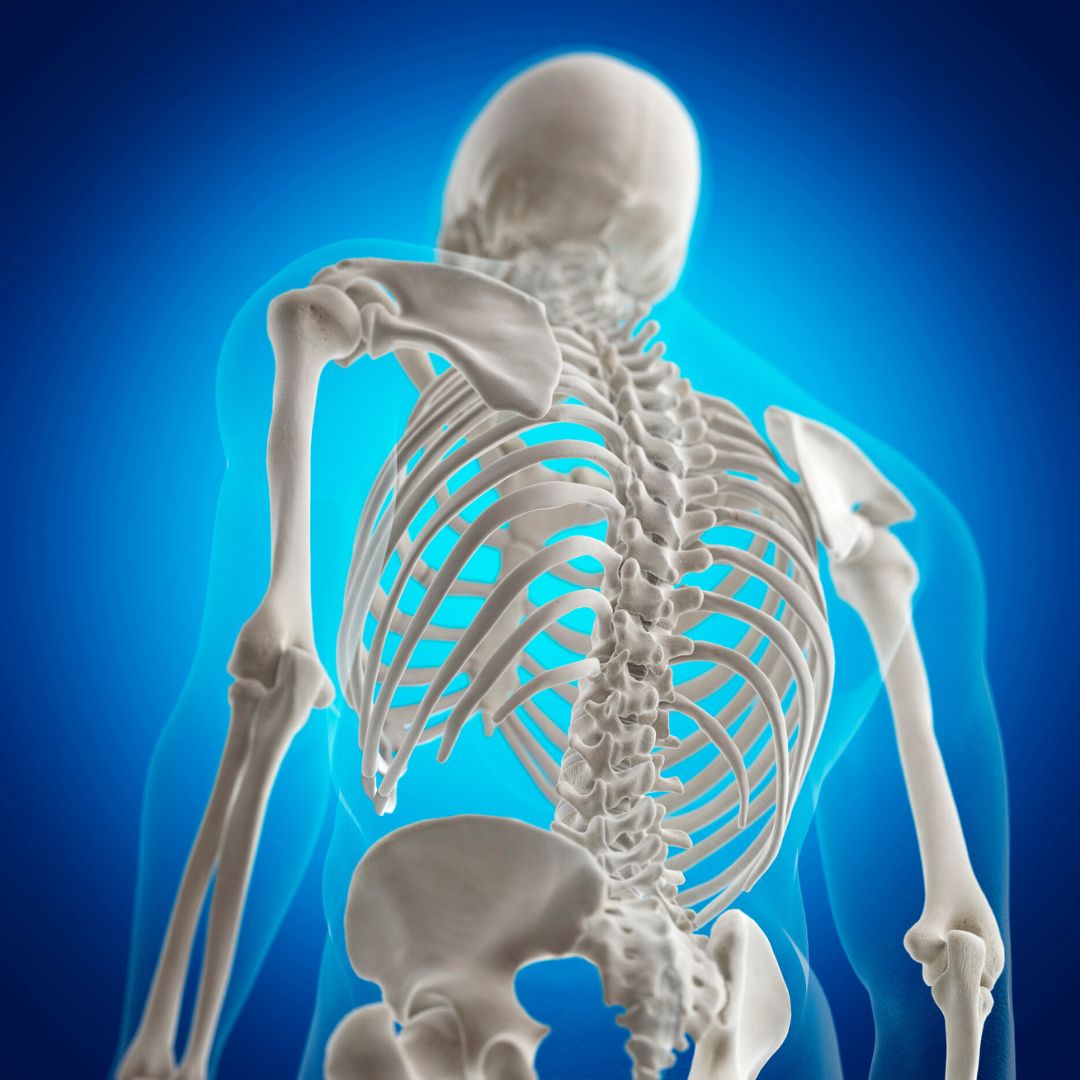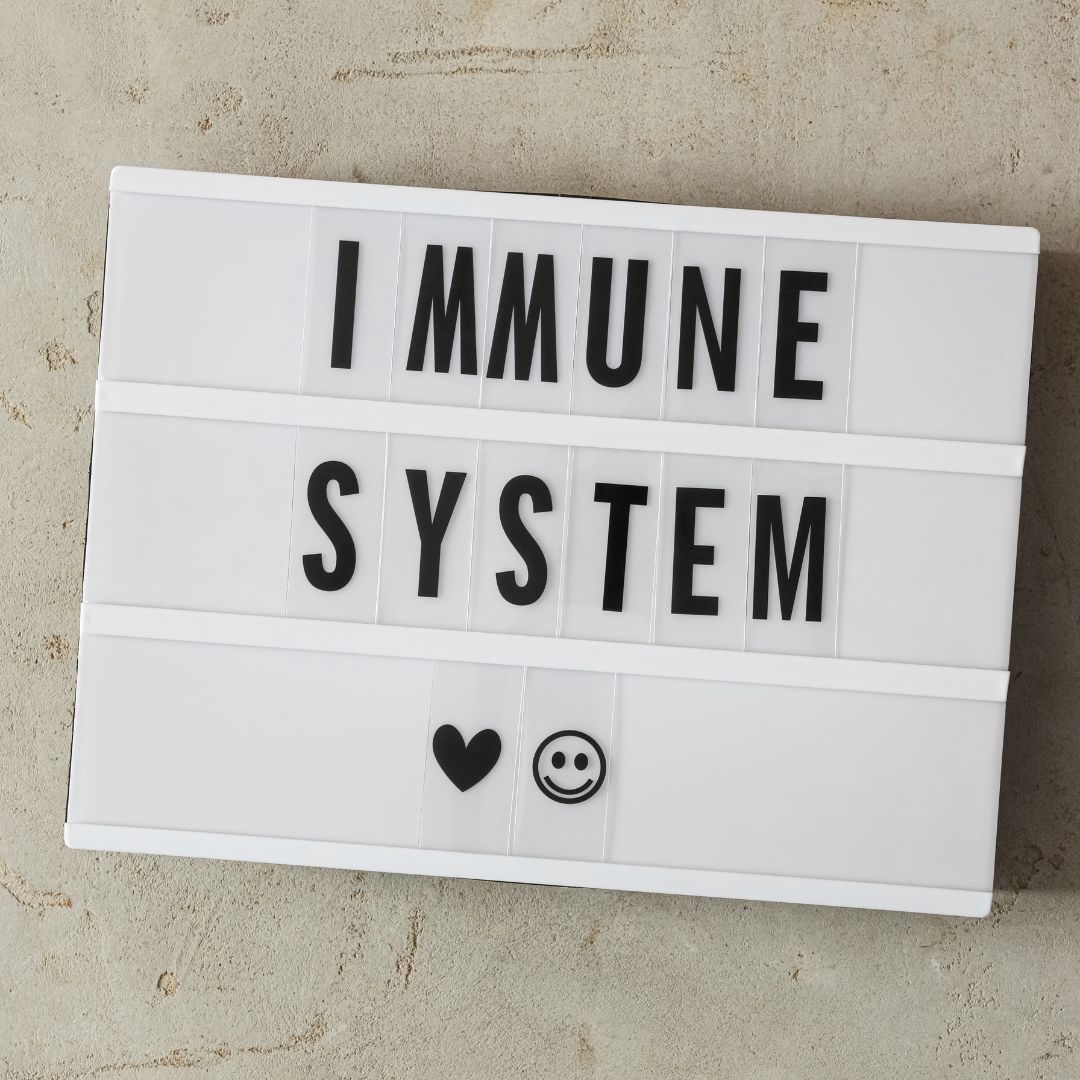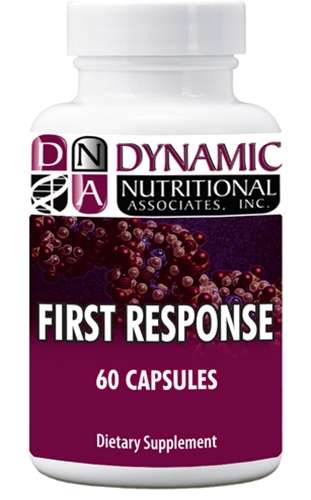
Vitamin D - An Essential Nutrient
We’ve discussed Vitamin D before, and, particularly this time of year, it’s great to discuss it again. Also known as the "sunshine vitamin," Vitamin D plays a pivotal role in maintaining overall well-being. This time we’ll journey through the historical roots of Vitamin D, its contemporary relevance, its critical importance in various bodily functions, and explore the fascinating link between Vitamin D and immune support which includes fighting off invading bacteria and viruses.
 Vitamin D is known as the "sunshine vitamin" because it’s made in your skin when exposed to sunlight. Every cell in your body has a receptor for vitamin D.
Vitamin D is known as the "sunshine vitamin" because it’s made in your skin when exposed to sunlight. Every cell in your body has a receptor for vitamin D.
You can also get Vitamin D through certain foods and supplements to ensure adequate levels of the vitamin in your blood.
Interestingly, Vitamin D deficiency is considered to be one of the most common nutrient deficiencies in the world. Some of the most common symptoms of deficiency include fatigue, impaired wound healing, muscle pain and hair loss. We'll also look at practical strategies on how to ensure adequate Vitamin D intake in your daily life
Historical Roots of Vitamin D
 The historical significance of Vitamin D can be traced back to ancient times when early civilizations recognized the role of sunlight in preventing a peculiar bone condition known as rickets. However, it wasn't until the early 20th century that scientists began to unravel the mysteries of this essential nutrient.
The historical significance of Vitamin D can be traced back to ancient times when early civilizations recognized the role of sunlight in preventing a peculiar bone condition known as rickets. However, it wasn't until the early 20th century that scientists began to unravel the mysteries of this essential nutrient.
Sir Edward Mellanby and Sir Frederick Hopkins are credited with the groundbreaking discovery of Vitamin D in the 1920s. Their research illuminated the connection between sunlight, dietary factors, and the prevention of rickets—a skeletal disorder affecting primarily children.
Contemporary Insights
Fast forward to the present day, and Vitamin D has transcended its initial association with bone health. Research has unveiled its multifaceted role in various physiological processes, influencing not only bone metabolism but also immune function, cardiovascular health, mental well-being, and more.
Biological Functions:
Vitamin D is unique in that it functions both as a vitamin and a hormone. Synthesized in the skin upon exposure to ultraviolet B (UVB) sunlight, Vitamin D undergoes a series of conversions in the liver and kidneys to become its active form, calcitriol. Calcitriol, in turn, regulates the absorption of calcium and phosphorus in the intestines, crucial for maintaining bone health.
Beyond Bone Health:
While Vitamin D's association with bone health remains fundamental, contemporary research has unveiled its involvement in diverse physiological processes. From immune system modulation to cardiovascular protection and mental well-being, Vitamin D is emerging as a key player in overall health.
Why is Vitamin D So Important?
Bone Health
Vitamin D's classic role involves promoting the absorption of calcium and phosphorus, vital minerals for bone formation and maintenance. A deficiency in Vitamin D can lead to conditions like osteoporosis and rickets, particularly in children.
formation and maintenance. A deficiency in Vitamin D can lead to conditions like osteoporosis and rickets, particularly in children.
Cardiovascular Health
Research suggests a correlation between Vitamin D deficiency and an increased risk of cardiovascular conditions. The vitamin's role in regulating blood pressure, reducing inflammation, and improving endothelial function highlights its potential cardiovascular benefits.
Mental Health Connection
The link between Vitamin D and mental health is a subject of growing interest. Low Vitamin D levels have been associated with conditions like depression and seasonal affective disorder (SAD), emphasizing the importance of sunlight exposure for mental well-being.
The Link Between Vitamin D and Immune System Support
The relationship between Vitamin D and the immune system is a topic of increasing interest and research. Vitamin D receptors are present on various immune cells, and its active form, calcitriol, plays a crucial role in modulating immune responses.
 Immune Modulation
Immune Modulation
Vitamin D plays a crucial role in enhancing the innate immune response. It promotes the production of antimicrobial peptides, which are essential for defending the body against infections. Additionally, Vitamin D helps regulate the adaptive immune system, contributing to the prevention of autoimmune issues.
Reducing Inflammation
Optimal levels of Vitamin D have been associated with a reduction in chronic inflammation, which is a contributing factor to various health challenges. By regulating inflammatory pathways, Vitamin D helps maintain a balanced immune response and helps prevent the development of inflammatory conditions.
Lowering the Risk of Respiratory Infections
Several studies have explored the relationship between Vitamin D and respiratory infections. Adequate levels of Vitamin D have been linked to a lower risk of respiratory tract infections, including the common cold and influenza.
Autoimmune Conditions
Insufficient Vitamin D levels have been implicated in the development of autoimmune conditions such as rheumatoid arthritis, multiple sclerosis, and inflammatory bowel. While the exact mechanisms are still under investigation, the immunomodulatory role of Vitamin D is considered a crucial factor. Immunomodulatory is defined as an alteration of the immune system or of an immune response by agents that activate or suppress its function.
How to Get More Vitamin D
 Sunlight Exposure
Sunlight Exposure
Spend time outdoors, especially during peak sunlight hours. Aim for around 10-30 minutes of sunlight exposure on the face, arms, back, or legs at least twice a week. Factors such as skin tone, geographical location, and sunscreen use can impact the effectiveness of sunlight exposure.
Include foods rich in Vitamin D in your diet.
• Fatty fish such as salmon, mackerel, and tuna are excellent sources.
• Fortified foods like dairy products, orange juice, and cereals can contribute to Vitamin D intake.
• Include egg yolks and mushrooms in your diet.
Supplements
Vitamin D supplements are available in various forms, including Vitamin D2 (ergocalciferol) and Vitamin D3 (cholecalciferol).
Consequences of Deficiency:
 • Weakened bones, leading to conditions like osteoporosis and rickets.
• Weakened bones, leading to conditions like osteoporosis and rickets.
• Compromised immune function and increased susceptibility to infections.
• Potential links to mood disorders, including depression and seasonal affective disorder.
• Elevated risk of developing chronic conditions, including cardiovascular and autoimmune disorders.
Understanding the Importance of Vitamin D
Vitamin D stands at the intersection of historical significance and contemporary relevance in the realm of health and wellness. From its crucial role in bone health, immune modulation, to potential implications in mental well-being, this multifaceted vitamin deserves our attention.
Understanding the importance of maintaining optimal Vitamin D levels and adopting strategies to ensure sufficient intake—whether through sunlight exposure, dietary choices, or supplementation—can contribute to overall health and resilience against various conditions.
More Immune System Boosters
Support your immune system this winter season. Enjoy all your holidays!
• First Response by Dynamic Nutritional Associates (DNA Labs). First Response contains nutrients, herbs and glandular ingredients that are specific to supporting a healthy immune system. Keep First Response in the medicine cabinet or your travel bag. Use this high-impact formula at the first sign of illness.
glandular ingredients that are specific to supporting a healthy immune system. Keep First Response in the medicine cabinet or your travel bag. Use this high-impact formula at the first sign of illness.
• Co-Resist by Professional Botanicals is designed to help support general immune system health and resistance. Co-Resist synergistically combines needed nutrients to help support rapid immune response.
• D-104 Viratox Homeopathic Stress Formula by Dynamic Nutritional Associates (DNA Labs) provides support for viral infections.
• Immu Cell by Professional Botanicals is doctor-formulated to help maintain proper function and ability to utilize nutrients needed for healthy and strong cells
• Respiratory Energizer by Dynamic Nutritional Associates (DNA Labs) is a multi-herb liquid designed to support a healthy respiratory system.
Feel better the natural way...with Naturally Botanicals.

Note: The content of this article, and additional content on this website, are for informational purposes only and are not intended to be a substitute for professional medical advice, diagnosis, or treatment. Always seek the advice of a physician or other qualified health provider with any questions you may have regarding a medical condition. Never disregard professional medical advice or delay in seeking help because of something you read here on this website.



